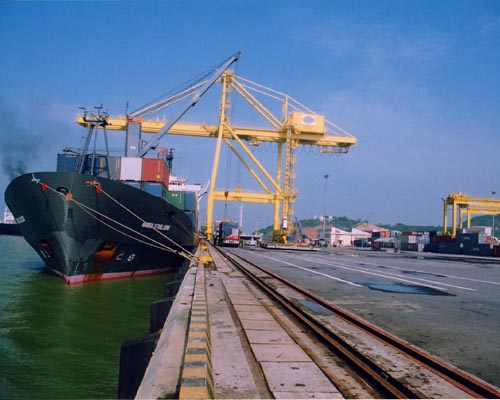|
Tien Sa Port developer turns down Official Development
Assistance
Infrastructure
developers prefer seeking capital from domestic and foreign commercial loans
than official development assistance (ODA), which is in the long run more
expensive than people think.
 “If we cannot find capital for the Tien Sa Port expansion project, I will step down,” said Nguyen Huu Sia, general director of the Da Nang Port JSC when asked if he could arrange capital for the important project. Sia refused to borrow capital from Sia understands why the expansion project is important to With a rapid annual growth rate of 10-20 percent, the volume of goods expected to go through Tien Sa Port in the next five or six years would be 10 million tons per annum. This means that if the port cannot be expanded, it would get overloaded. Sia said that it is now easy to seek capital for investment projects, if the projects are feasible. “No need to worry about capital mobilization. Capitalists would offer capital at reasonable costs, provided that you can use the capital effectively,” he explained. Nguyen Thu, chair of the Da Nang Port JSC, said the company needs VND1 trillion for the second phase of the project, while the company itself has 40-50 percent of capital needed. Thu said Da Nang Port JSC refused ODA because of the anticipated risks from the exchange rate fluctuations. If he borrowed capital from ODA, the project would only kick off in 2016. Meanwhile, capital from domestic sources may allow it to begin in 2015. A finance expert said he agrees with Sia that it was not difficult to find capital now, so it would be better to ease the reliance on foreign sourced capital and ODA, which is believed to have latent risks. Dr. Le Dang Doanh, a renowned economist, noted that if Dr. Nguyen Duc Thanh from the Pham Chi Lan, also a renowned economist, noted that as
Dat Viet
|
Thứ Ba, 31 tháng 3, 2015
Đăng ký:
Đăng Nhận xét (Atom)
Không có nhận xét nào:
Đăng nhận xét